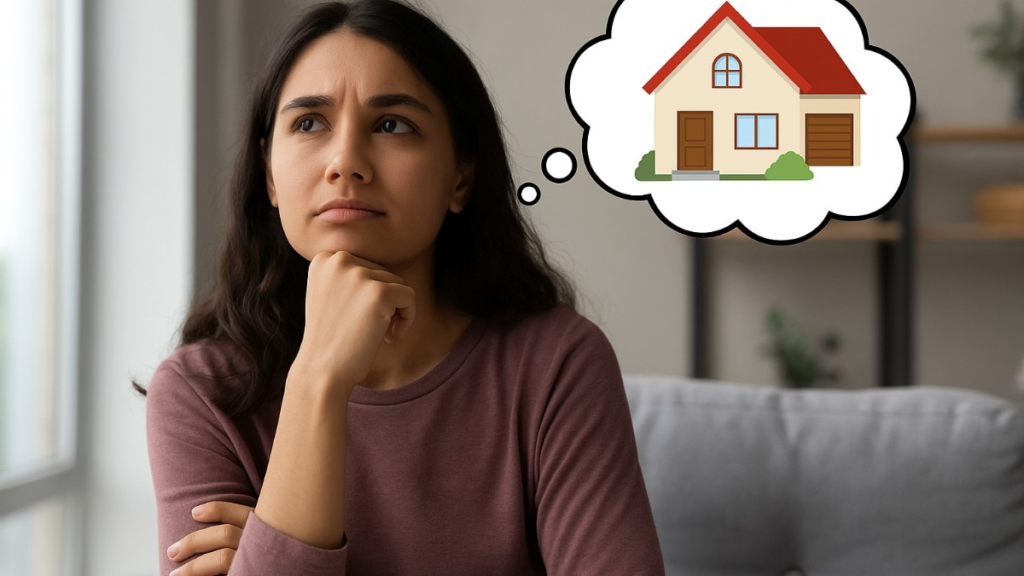I’m 28 and have been seriously considering taking a home loan to buy a compact 2BHK. But lately, I’ve been rethinking the long-term utility of locking into a property so early in life.
Here’s the dilemma: the home I buy now may not meet my family’s needs 10–15 years down the line. By the time the loan is repaid in my 40s, my job location, lifestyle, family size, and even city preferences might have changed drastically. Yet, emotional attachment may make it hard to let go of that first home—even if it no longer fits our life.
I’ve seen friends emotionally tied to houses they don’t live in anymore—renting them out for a tiny sum while living elsewhere on rent. Their kids are settled abroad and have no use for those properties. In hindsight, it feels like the banks won, not them.
To be clear, I’m not anti-homeownership. But I wonder: is it wiser to delay buying a home, stay debt-free, rent as needed, and use my 20s and 30s to explore, grow, and invest flexibly?
Would love to hear from seasoned investors or anyone who’s followed an “asset-light” approach in early life. How has it worked out for you financially and emotionally?
Advice by Rajani Tandale, Senior Vice President, Mutual Fund at 1 Finance
Buying Your First Home Early – Why It’s Not Just a Financial Decision, But a Life Strategy
You’re absolutely right to weigh the long-term utility of owning a home early in life. It’s a mature dilemma, and one that more millennials are grappling with. But before concluding that homeownership is limiting, consider the holistic impact – both tangible and intangible – of having your own roof over your head.
Emotional & Personal Advantages: The Unspoken Value – Owning a home does more than offer security – it shapes your personality and lifestyle:
· It instills a sense of stability and responsibility, reinforcing confidence in daily decision-making.
· The peace of mind that comes from having a space that’s truly yours reduces subconscious stress, which improves sleep, mental clarity, and emotional well-being.
· It enhances productivity in your professional life – you’re no longer worrying about rent renewals, moving, or landlord issues.
· It even strengthens personal relationships – providing a foundation for family planning, shared goals, and long-term thinking.
These benefits cannot be measured in monetary terms, but their impact is profound and lasting.
Financial Planning Is the Deciding Factor – Not Age
Homeownership becomes a burden, not a blessing, when done without sound planning. Here are the metrics you must evaluate before taking the plunge:
1. Liability-to-Asset Ratio What portion of your net worth will the loan take up?
2. Liability-to-Income Ratio This helps you decide how much EMI you can afford.
3. Expense-to-Income Ratio Track how much of your income is consumed by fixed and variable expenses.
4. Investment-to-Income Ratio Are you consistently investing across equity, debt, and alternatives? If not, optimize before committing to a home loan.
5. Down Payment Readiness Have you accumulated a certain amount of the property value to fund the down payment without touching your emergency corpus?
Above ratio needs to be calculated based on many factors like your income, lifestyle, city, dependents, your generation profile, and this is very unique for every individual, sit with a financial advisor for holistic analysis.
While renting feels flexible, rental inflation is real – rents in cities rise 8 – 9% annually, outpacing wage growth in many sectors. Meanwhile, your investments may face volatility. If your long-term rental cost and market volatility erode savings, you may end up paying more without building any asset.
Asset Allocation: Real Estate Is Just One Piece. Your overall portfolio should be diversified with the following assets
· Equity: For long-term growth (mutual funds, stocks)
· Debt: For stability (FDs, debt mutual funds, PPF)
· Real Estate: For physical asset and rental potential
· Passive Income Tools: Like REITs or Dividends
· Alternatives: Gold, silver,
This diversified base enhances your safe withdrawal rate post-retirement, giving you a stable income without relying solely on property appreciation or market performance.
Buy your first home not because it’s a cultural milestone – but because it’s a strategic move. Done right, it provides emotional peace, financial discipline, and future leverage. But don’t rush into it.
Let your numbers, not your emotions, guide the decision. A well-planned purchase in your late 20s or early 30s is often better than a reactionary one in your 40s when flexibility starts narrowing.
(Views expressed by the expert are his/her own. E-mail us your investment queries at [email protected]. We will get your queries answered by our panel of experts.)
Source:https://www.businesstoday.in/personal-finance/investment/story/is-buying-a-home-in-your-20s-worth-it-heres-what-most-first-time-buyers-overlook-480429-2025-06-14?utm_source=rssfeed

